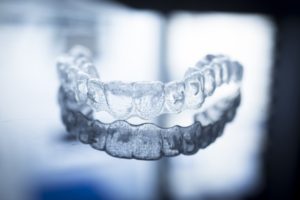When and Why Do Veneers Need To Be Replaced?
Dental veneers are an irreversible procedure, which means that once they reach the end of their life expectancy, you’ll need to consider replacement. In some cases, you may need to replace them earlier than that. The signs that you need to replace your veneers early include:
- Chips/cracks
- Excessive wear/tear
- Tooth under the veneer is decayed
- Veneer is separated from the gum due to improper oral hygiene habits or gum disease
- Dentist did not apply the appropriate size veneer
- Dentist did not properly apply veneers
Factors Impacting Dental Veneer Life Expectancy
There are several factors that can impact the life expectancy of your veneers, including:
- Type of veneers: composite resin veneers last up to 10 years with proper care and maintenance while porcelain can last up to 20 years
- Quality of veneers: as with anything else, there are different brands of veneers available, some are higher quality than others
- Lifestyle habits: habits such as smoking or using other tobacco products, using teeth as tools, improper oral hygiene habits, crunching ice, chewing on non-food items, and other habits can shorten the lifespan of your veneers
- Care and maintenance: if you do not take proper care of your veneers- this includes brushing twice daily and flossing at least once- you can shorten the life expectancy of your veneers
There are a few things you can do to increase the lifespan of your dental veneers including:
Practicing proper oral hygiene
Proper oral hygiene habits will not only protect your natural teeth, but they can also improve the life expectancy of your restorations. Brushing and flossing will prevent bacteria and plaque buildup, which can prevent complications with your veneers.
Use a Mouthguard
If you play contact sports, ask your dentist about getting a custom-fitted mouthguard to protect your natural teeth and your restorations. If you are prone to bruxism, you should discuss getting a night guard to protect your teeth.
Avoid Using Your Teeth as Tools
When opening packages, use a pair of scissors or a knife instead of your teeth. If you need to trim your fingernails, use clippers instead of biting them. When you use your teeth as tools, you put unnecessary pressure on them, which can cause damage to your veneers.
Avoid Grinding your Teeth
If you clench/grind your teeth at night, ask your dentist about getting a night guard to protect your teeth while you sleep. If you find that you are clenching/grinding your teeth during the day, find ways to relax and reduce your stress levels.
If you have questions or concerns about your veneers, your dentist can resolve them for you. Below are some of the most common questions that are asked about veneers.







